News
-
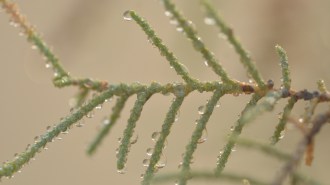 Plants
PlantsSalty sweat helps one desert plant stay hydrated
The Athel tamarisk excretes excess salt through its leaves. The buildup of salt crystals pulls water directly from the air, a study reports.
-
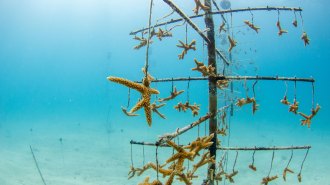 Animals
AnimalsFake fog, ‘re-skinning’ and ‘sea-weeding’ could help coral reefs survive
Coral reefs are in global peril, but scientists around the world are working hard to find ways to help them survive the Anthropocene.
-
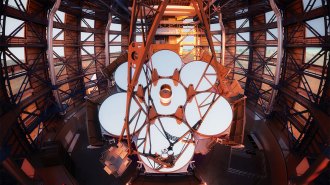 Space
SpaceHow giant mirrors are made for what will be the world’s largest telescope
The Giant Magellan Telescope is slated to probe the cosmos for Earthlike worlds and atmospheric signatures of potential extraterrestrial life.
By Nikk Ogasa -
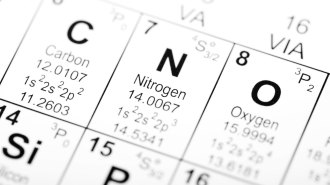 Physics
PhysicsPhysicists get a first glimpse of the elusive isotope nitrogen-9
With seven protons and two neutrons, the lopsided atomic nucleus of nitrogen-9 pushes the limits of what can even be considered a nucleus.
By Elise Cutts -
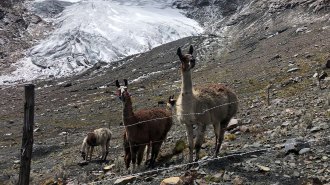 Animals
AnimalsAt the foot of a melting glacier in Peru, llamas helped revitalize the land
A partnership between scientists and farmers suggests how llama herding can mitigate some of the impacts of climate change.
-
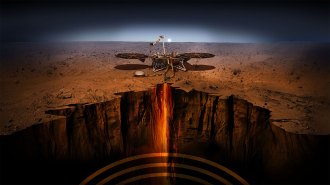 Planetary Science
Planetary ScienceMarsquakes and meteorite hits show Mars has a dense liquid metal core
Mars’ dense liquid iron core is wrapped in a layer of molten rock, which threw off previous measurements of the Red Planet’s heart.
-
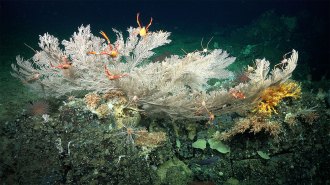 Life
LifeSee the wonders of two newfound deep-sea coral reefs off the Galápagos
Coral reefs around the world are in trouble. But these reefs in the Galápagos Island Marine Reserve have yet to be damaged by humans.
-
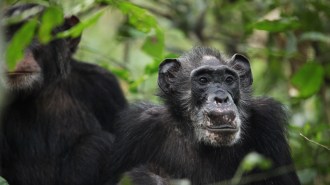 Anthropology
AnthropologySurprisingly long-lived wild female chimps go through menopause
Chimpanzees in Uganda are the first known example of wild, nonhuman primates experiencing the hormonal changes, raising questions about how menopause evolved.
By Bruce Bower -
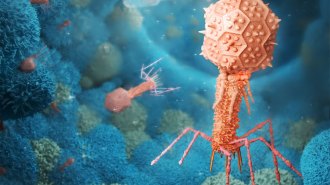 Life
LifeHuman cancer cells might slurp up bacteria-killing viruses for energy
In the lab, human cancer cells show signs of cell growth after ingesting bacteria-killing viruses, a hint our cells might use bacteriophages as fuel.
-
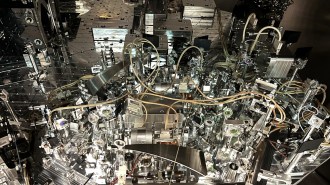 Physics
PhysicsHow quantum ‘squeezing’ will help LIGO detect more gravitational waves
An upgrade to LIGO that comes from exploiting a quantum rule known as the Heisenberg uncertainty principle makes it easier to detect spacetime ripples.
-
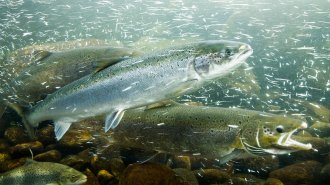 Animals
AnimalsPumping cold water into rivers could act as ‘air conditioning’ for fish
Hundreds of salmon, trout and other fish sought shelter from summer heat in human-made shelters, suggesting a way to help fish adapt to river warming.
By Nikk Ogasa -
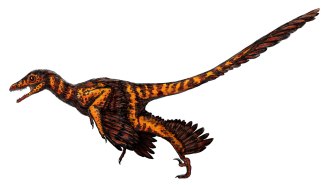 Paleontology
PaleontologyDinosaur feathers may have been more birdlike than previously thought
Feather proteins can change during fossilization, raising questions about what dinosaur feathers really can tell us about feather evolution.